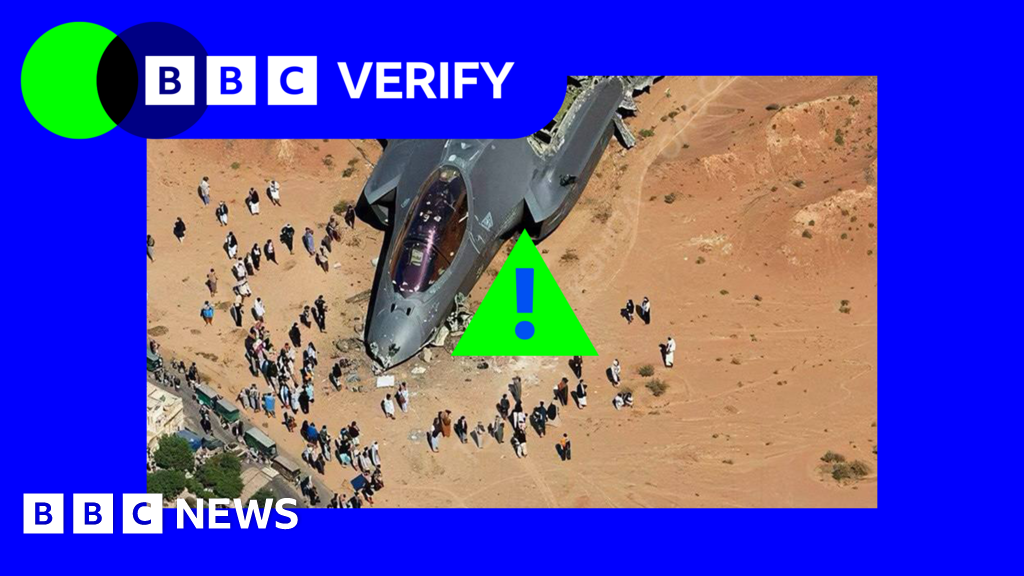Disinformation surged online amid Israel-Iran strikes, with AI deepfakes boosting false claims.
Since Israel’s strikes on Iran began on June 13, a flood of fake videos and images has exploded across social media. BBC Verify reviewed dozens of posts glorifying Iran’s military hits and fabricating damage to Israel — including AI-generated videos racking up over 100 million views.
Pro-Israeli accounts pushed disinfo too, recycling old clips of Iran protests as if they show current unrest against Tehran’s government.
Open-source analyst group Geoconfirmed called the spread "astonishing," blaming "engagement farmers" who profit from viral lies. Their review found unrelated footage from Pakistan, old videos from 2024, AI-generated night attacks, and even game footage circulating as reality.
The account Daily Iran Military nearly doubled its followers on X in days—from 700,000 to 1.4 million—by pumping out disinformation. Many accounts with blue ticks and official-sounding names flood feeds but have unclear origins.
Get Real’s Emmanuelle Saliba described this disinfo wave as:
"the first time we’ve seen generative AI be used at scale during a conflict."
Some fake content shows Iranian missile barrages on Tel Aviv or night-time strikes on Israeli cities, all AI fabrications.
A major focus is false claims about knocked-out Israeli F-35 jets. If true, Iran would have destroyed 15% of Israel’s fleet, says Lisa Kaplan, CEO of analysis group Alethea. But no authentic footage of F-35 shootdowns exists.
One popular post showing a downed jet in the Iranian desert had clear AI errors: civilians were oddly sized and sand showed no impact.
Another viral video with 21.1M TikTok views purported to show an F-35 downed by air defenses. It was a flight simulator clip. TikTok removed it after BBC Verify’s alert.
Kaplan linked F-35 disinfo to networks tied to Russian influence operations, noting a pivot from Ukraine war disruption to undercutting trust in Western weapons.
"Russia doesn’t really have a response to the F-35. So what it can it do? It can seek to undermine support for it within certain countries," Kaplan said.
Well-known accounts active in Israel-Gaza conflict coverage are also spreading fakes, some chasing cash via viral content payouts.
Pro-Israeli disinfo typically aims to show rising dissent in Iran, including AI fakes of Tehran crowds chanting "we love Israel."
With speculation about US strikes on Iranian nuclear sites, some accounts post AI images of B-2 bombers over Tehran — the only aircraft capable of attacking underground nuclear facilities.
State media on both sides have shared fake footage. Iran’s state TV posted AI images of downed F-35s. The Israel Defense Forces (IDF) shared old missile footage flagged by X with a community note.
Much of the disinfo spreads on X, where users rely on the platform’s AI chatbot Grok to verify posts. But Grok has incorrectly confirmed some fakes as real.
Saliba pointed out one viral video of missile trucks emerging from a mountain had rocks moving unnaturally — clear AI fail. Yet Grok insisted it was genuine, citing Newsweek and Reuters reports.
X didn’t answer BBC Verify’s request for comment on Grok’s misidentifications.
TikTok said it enforces rules against misleading content and works with fact-checkers. Meta didn’t respond.
University of Notre Dame researcher Matthew Facciani explained:
"That speaks to the broader social and psychological issue of people wanting to re-share things if it aligns with their political identity, and also just in general, more sensationalist emotional content will spread more quickly online."
The conflict’s online disinfo will likely keep escalating as AI tools make fakes faster and harder to spot.














